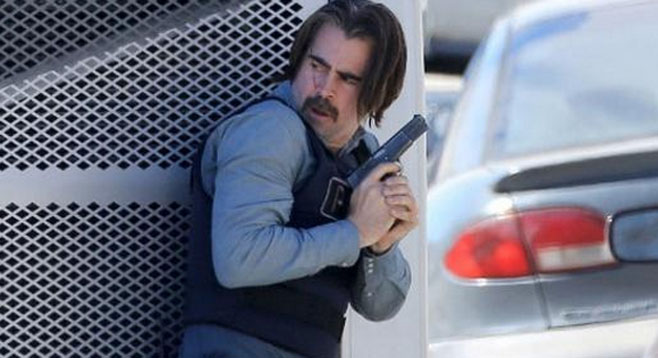 Because the second season of “True Detective” (HBO, 9 p.m.) shares nothing with its epic first season — neither the story, nor the stars, nor even locale — most will immediately see lapses in comparison.
Because the second season of “True Detective” (HBO, 9 p.m.) shares nothing with its epic first season — neither the story, nor the stars, nor even locale — most will immediately see lapses in comparison.
Colin Farrell is no Matthew McConaughey, though he’s obviously the same kind of troubled detective addressing a story from two different time frames; along these lines Vince Vaughn is no Woody Harrelson, either. Harrelson is a comic actor who adjusted to serious roles before he got to “True Detective”; not so with Vaughn, who is clearly trying to find his way as this one starts. He’s not the detective’s partner, though, but a casino boss to whom Farrell’s character has a debt.
Writer Nic Pizzolotto is the common factor to season one and it’s a crucial aspect. Changing from the bayou South to Los Angeles, he focuses on the industrial corners of the town, and plays on a couple of topical news item from those parts: plans for a bullet train that will enrich people along its route, and the bankrupt city roiling in corruption and minor fiefdoms, awash in corruption.
The death of the city manager in one town in a particularly surly manner brings in the state investigators, who of course battle for jurisdiction but while they’re there want to bring in xxx as well, since they heard he and the whole place is corrupt.
It’s up to Rachel McAdams to be lead detective, then, and it’s a good choice. She’s brainy and tough, and Pizzolotto has her address the fact that as another way too physically slight woman to be in the business, she protects herself with all manner of knives and firearms.
A third investigator is a young one — Taylor Kitsch — dealing with his own internal issues and a recent tabloid embarrassment.
They make an unlikely trio to solve this web, but an interesting one to follow. The visual tone, with mesmerizing overhead shots of freeways, and people caught in their own heads and homes, is no longer that of one guy — Cary Fukanaga is no longer directing every episode as he did for the stellar season one.
But there’s a consistency from the directors who come on board to keep up his bleak vision. The music is pretty strong too, from the opening theme from Leonard Cohen to closing credits in episode one anyway from Nick Cave.
The tone throughout is maudlin, which only gets overdone when the world’s most depressing song writer takes the stage in the dive bar Farrell’s character frequents. Listening to her, there’s no reason to carry on one’s life for any reason.
But there’s a reason things are mostly grim on “True Detective.” That’s the pulpy promise of the work. And while things all seem different, it stays true to the intent and delivers the same kind of punch.
I can’t imagine watching anything else this summer.